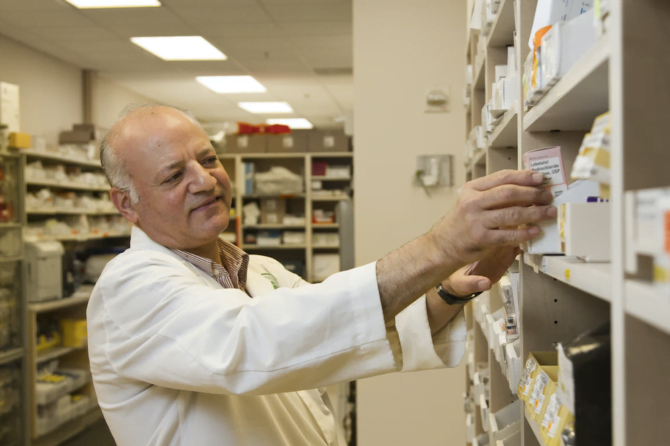
Is Adult Circumcision Done Under Full Anesthesia?
Circumcision procedures are generally straightforward. They’re typically done with the patient awake and using local or general anesthesia. You may opt to have your procedure without anesthesia, but you could experience significant pain.
In this article, we’ll discuss the different types of anesthesia doctors use during circumcision to help you feel more informed and confident about your decision.
And remember, no matter which type of anesthesia you choose for your adult circumcision, your fear of the injection is most likely worse than the injection itself!
Why Is Anesthesia Used for Circumcision?
Doctors use anesthesia for adult circumcision procedures for two primary reasons: safety and comfort.
Injecting anesthesia helps keep patients comfortable during adult circumcision procedures by blocking pain signals from traveling through nerves to your brain. When the area is numb, surgeons can work efficiently without worrying about causing unnecessary pain or discomfort for their patients.
Without sufficient anesthesia, patients can experience excruciating levels of pain that can last for hours after their procedure has been completed. Patients may also feel dizzy or faint due to shock if they become overwhelmed by sudden pain during the operation. For these reasons, proper anesthesia is essential for ensuring the safety and comfort of each patient undergoing adult circumcision surgery.
2 Types of Anesthesia Used in Adult Circumcision
There are two main types of anesthesia used for adult circumcision—local and general.
The type of anesthesia used depends on the patient’s preference and the doctor’s recommendation. When giving anesthesia, the doctor injects the medicine into the penis before the procedure to ensure that the patient remains comfortable throughout.
1. Local Anesthesia
Typically, adult circumcision is done under local anesthesia.
Local anesthesia numbs a specific area by blocking nerve signals, and the patient feels only pressure in that area. It doesn’t cause drowsiness or unconsciousness, so you’ll be fully awake throughout the circumcision procedure.
Doctors inject local anesthetics into the patient using different techniques. Here are several ways local anesthesia is offered:
Dorsal Penile Nerve Block
The goal of the dorsal penile nerve block is to inject a sufficient amount of local anesthetic from the top of the penis to the base. The doctor begins slowly to check that the patient isn’t allergic to the anesthetic used. If all is clear, a needle is inserted from the top of the penis to infiltrate the anesthetic at the penis’s base, near the pubic symphysis (the connection in the front of your left and right pelvic bone).
Ring Block
A ring block is a type of injection that numbs the area around the base of the penis. Doctors perform this using a needle and a small anesthetic solution. If your plan includes the ring block and the dorsal nerve block, discuss lidocaine toxicity with your doctor to choose the safest method for you.
Caudal Block
A caudal block is a one-time injection of a local anesthetic to the tailbone region. This technique provides pain relief for around six to eight hours after receiving anesthesia.
Spinal Block
A spinal block is a local anesthetic and isn’t delivered with a general anesthetic. The numbing begins after an anesthesiologist injects a local anesthetic into your back, below the spinal cord. Like the caudal block, this technique relieves pain for six to eight hours.
2. General Anesthesia
General anesthesia is a stronger drug that causes a complete loss of consciousness during surgery. It also helps relax muscles to reduce pain and discomfort during the procedure.
While general anesthesia provides more pain relief than local anesthetic injections, doctors rarely use it for adult circumcision due to its risks. Some risks include nausea, vomiting, headaches, and difficulty breathing.
However, if you’re particularly anxious about undergoing adult circumcision, your doctor may recommend using general anesthesia.
Nitrous Oxide
One common general anesthesia that doctors use is nitrous oxide, or “laughing gas,” so-called for its excellent anti-anxiety properties and effective pain relief.
The anesthetic is delivered as a gas and breathed in. Within seconds, the patient begins to relax, and the anesthetic can be controlled during the procedure to maintain the desired level of relief. The anesthetic wears off shortly after the procedure.
In some instances, it’s given with other local anesthetics for better pain control and comfort.
Valium
Valium is a sedative drug that relaxes muscles and reduces anxiety, but doctors rarely use it due to its risks. If you’re especially nervous about adult circumcision or have special needs, talk to your doctor about using Valium as an option.
Have a Painless Circumcision with Professionals
Adult circumcision can help reduce the risk of certain infections and diseases while also providing a more aesthetically pleasing appearance. But adult circumcision is also a delicate procedure that requires proper anesthesia to ensure the safety and comfort of each patient.
While several types of anesthetics are available, it’s important to discuss your options with a doctor beforehand to determine your best option. From local anesthesia to general anesthesia, adult circumcision is safer and more comfortable when the right anesthetic is used.
At ,The Center for Circumcision, we have board-certified urologists who can discuss with you the different anesthesia available for adult circumcision. With us, you’re assured that you’re in safe hands and that your comfort is the top priority.
Get circumcised by professionals at the Center for Circumcision. ,Contact us today!
References:
,Circumcision | Treatments & Procedures (cincinnatichildrens.org)
,Dorsal Penile Nerve Block – StatPearls – NCBI Bookshelf (nih.gov)
,Nerve Block, Dorsal Penile, Neonatal: Overview, Indications, Contraindications (medscape.com)
,Nitrous Oxide Sedation for Vasectomy & Circumcisions in Calgary – Intramed
Leave a reply
Leave a reply